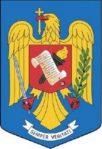Intro to Research
- Conduct an exhaustive search in this country or country in which you live of family interviews; home documents; birth, death and marriage records; and census records (the most recent U.S. census year open to researchers is 1940.)
- Locate your ancestor’s citizenship declaration and petition to find clues to the name of the ship and the date of arrival in North America.
- As you begin to work to identify your ancestor’s name, Be sure to document all the different name spellings. Determine the family’s religion. This will help narrow your search. Keep in mind the date of the event you are looking for.
- Attend classes in your local area, join RGS to receive our newsletters, attend our meetings, and watch for more updates at romaniangenealogy.com.
Once you have pinpointed the village of origin, you may be ready to contact the National Archives of Romania (for records accessible after 100 years) or the city hall (maintains civil records). You will need to formulate a specific question. (What exactly are you trying to find? A birthdate and names of parents, for example?) You may write in English or Romanian or both (recommended); requests are now being accepted through the Archives website and by email. For additional information visit Research National Archives and our Guide for Making a Request to the National Archives of Romania.
When researching a family history that includes Romanian ancestors, you will benefit from studying the basics of genealogical research and learning a bit of Romanian history before trying to jump into Romanian records. For example, many beginners are surprised to learn that there was no country called “Romania” until the 19th century. Most of our ancestors emigrated before World War I, when much of present-day Romania was under Hungarian rule and had Hungarian place names. We will not attempt to cover these topics extensively, but instead we include some useful links where you may find more detailed information.
Once you have exhausted resources to be found in the U.S. or Canada, you will be better prepared to delve into European records. Very few Romanian records are available online, and most will be found in the regional branches of the National Archives of Romania. However, due to historically changing borders, and depending on where your ancestor lived, you may be searching for records in the present-day countries of Austria, Hungary, Serbia, Ukraine or elsewhere. You may find documents recorded in Hungarian, Romanian, Latin or other languages, and some older church records may be written using Cyrillic script.
Before delving into European records, it may be helpful to review,
Wiki: Genealogy https://familysearch.org/wiki/en/Romania_Genealogy

